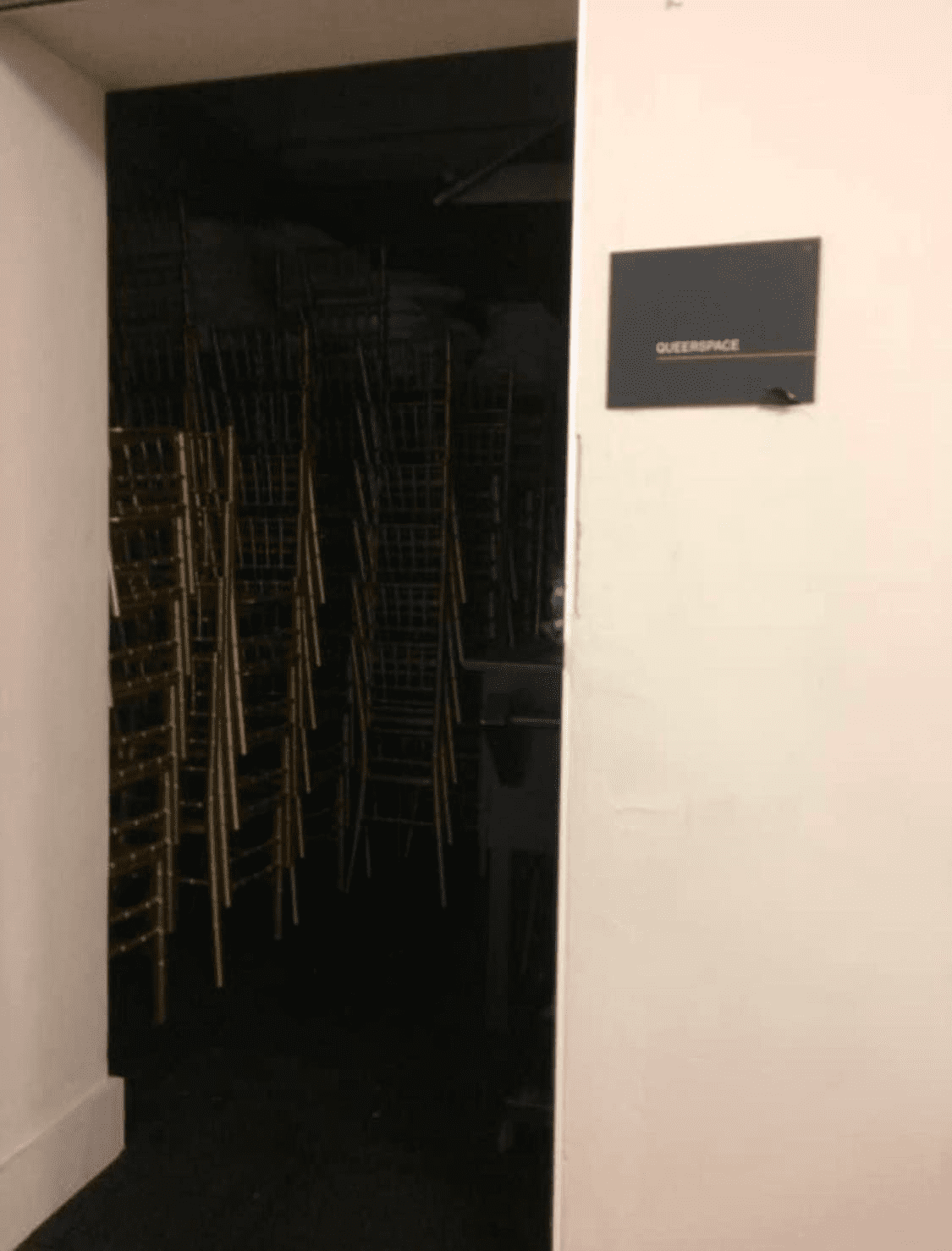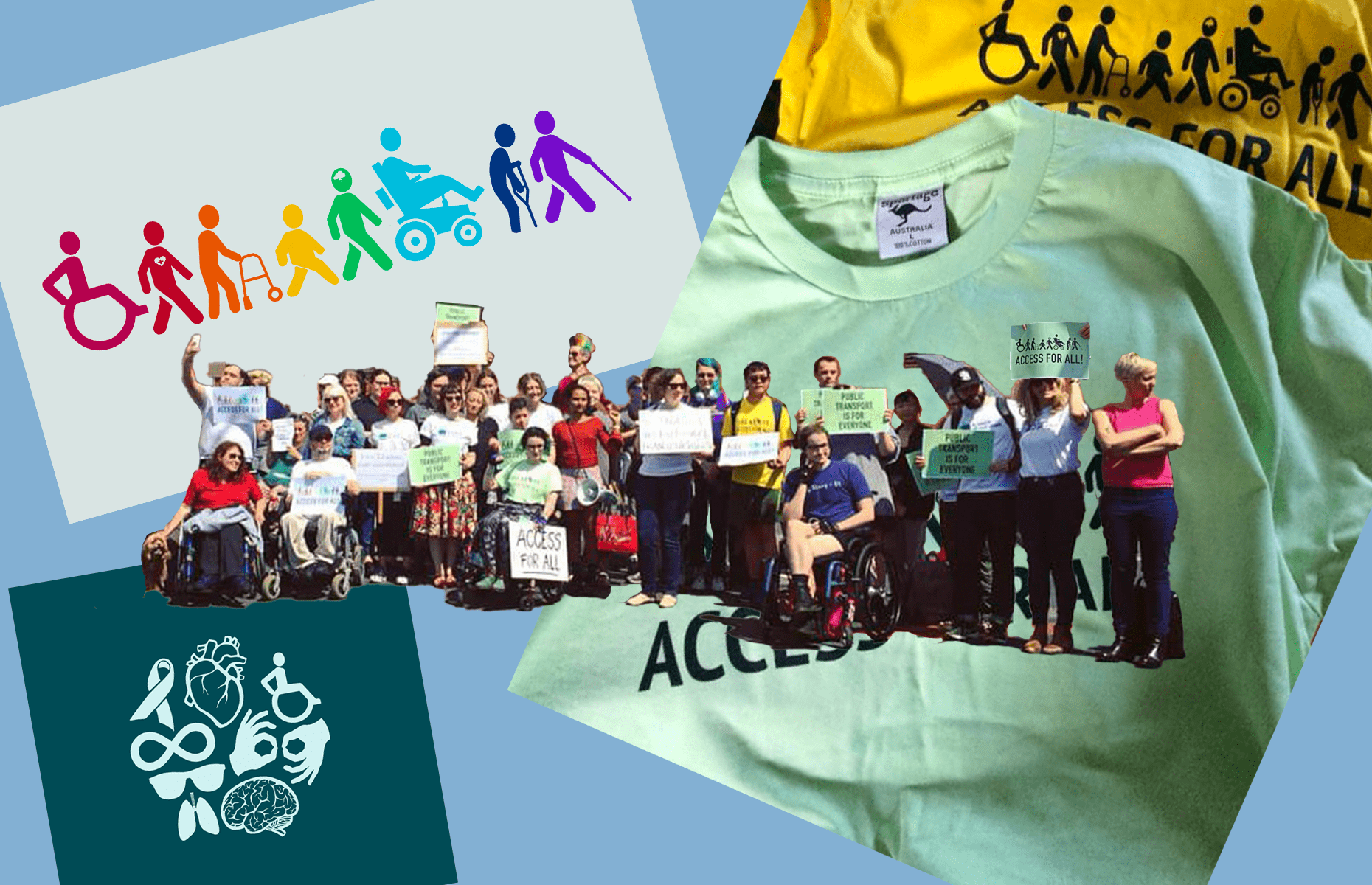USyd remains the only university within the Group of Eight (Go8) that does not have a dedicated social space for students with disabilities. This stands in stark contrast to the ANU’s Spoon Space, UQ’s Disabilities Space, and UWA’s Access Department room. Outside of the Go8, Wollongong University invested in a multisensory space designed with the disabled community in mind. These spaces not only provide a central meeting spot but also offer respite from the hustle and bustle of university life.
The obstacles facing the Disabilities space were two-pronged as hurdles were hurled upon USyd’s Disabilities Collective (DisCo) by the USU and the USyd in an uphill struggle against an intransigent university bureaucracy.
Ping-pongs with the USU
Some of the first attempts to secure a space for DisCo date back to the 2017 efforts of Noa Zulman, Margot Beavon-Collins and Robin Eames, who were the 2018 and 2020-21 SRC Disabilities Officers, respectively.
The trio spoke of their frustrations with the lack of interest from the USU with Beavon-Collins noting that in 2018, the organisation was initially cooperative with the Collective’s demand given the relocation of the old Queerspace from the Holme Building to Manning that year.
“It was all in the USU spaces where identity spaces were being managed. We knew that the Queerspace was going to move,” said Beavon-Collins.
Honi understands that in late 2018, the USU expressed informal support for DisCo to move into the old Queerspace near the Cellar Theatre.
These conversations took place with USU board members and USU staff in its Facilities Department who preside over infrastructure management.
According to Beavon-Collins, the USU soon showed a sense of disinterest, leaving the Collective in the dark until DisCo was blindsided by the USU informing them that the space was denied, citing a need for excess storage.
“That space [the original Queerspace in Holme] to this day is just being used for chair storage. They were like: Oh, it’s super important that we have a space to store all these chairs.”
“At the end of the day, it’s through the SRC, through the University, not the USU,” she explained. For her, the USU represented an overly bureaucratic body detached from student activism. Beavon-Collins’ view is one that has dogged the USU, with its mixed records following staff cuts in 2020 and lack of transparency leading to critics arguing that the organisation is more beholden to industry stakeholders than student welfare.
“It felt increasingly uncomfortable at the idea of having this corporate entity that is, for all intents and purposes, separate from the University, administering the space. This space should be provided by the University.”

In 2019, progress was finally attained when the USU Board passed a motion to support a disability space, with former Board Directors Adam Torres and Maya Easwaran credited as having assisted in drafting and drumming up consensus for the motion. Honi understands that there was a lack of action from the USU’s Facilities Department in the years that followed the motion.
Similar obstacles were experienced by former USyd student and 2018 SRC Disabilities Officer Noa Zulman. In 2020, Zulman approached current USU Vice President Ruby Lotz to help DisCo’s request given her extensive involvement and institutional knowledge of the project. Initially, Zulman received a warm reception and keen interest from Lotz.
However, this fell by the wayside as COVID-19 continued to dominate the USU’s agenda in the second half of 2020, following the first lockdown in NSW.
“They seemed to be really on board. But then after that meeting. She just wasn’t super responsive,” Zulman shared on the difficulties she faced attempting to put the proposal on the Student Board’s agenda. Compared to Beavon-Collins, Zulman is more optimistic about the USU’s ability to enact positive change to student life.
“I guess during the pandemic, during lockdown or just afterwards, I guess it wasn’t the priority of the organisation.”
In response, Lotz said that following the 2020 discussion, the USU gave the Disabilities Officers a tour of possible spaces.
A perennial problem, for Zulman, is that USU Board Directors often “make big promises” when they enter office, yet are rarely able to realise these to “any great extent”. Once Board Directors leave following their two-year terms, only a “little bit” of institutional knowledge is passed on, leading to a vicious cycle of non-commitment over the long run on projects such as the Disability space.
Mismatched expectations meant that DisCo soon invested more energy towards conversing with the SRC and University following the 2018 ordeal whilst still engaging with the USU. However, what followed was a familiar pattern of administrative disinterest that encapsulates the struggles facing disability advocacy on campus.
‘You just get this brick wall’: Administrative cat-and-mouse with USyd
At the university level, Beavon-Collins and Robin Eames encountered a myriad of issues as they continued to lobby for the disability space. Among the most problematic is the instability of USyd’s byzantine administrative machinery. Beavon-Collins explained that a combination of austerity and internal “shuffling” meant that staff turnover was high, leading to DisCo having to re-litigate the space proposal anew each time.
“You would get partway through a conversation and it would start looking really, really promising,” Beavon-Collins recalled, stating that USyd’s Disability Services agreed with the Collective on the need for an autonomous space.
“We had a really big meeting we planned and had. We had this whole list of things that we needed. It was gonna happen. And then, suddenly out of nowhere, it just turned into radio silence.”
Eames concurs, saying that matters were constantly “bounced around” forcing them to start “from scratch again” each time. At each turn, USyd passed the buck onto the next temporary staff member and took little co-leadership or interest in DisCo’s project, despite touting its 2019-24 Disability Inclusion Action Plan.
In June 2021, Gemma Lucy Smart, a former SUPRA Disabilities Equity Officer, submitted a SSAF application for a disabilities space under SUPRA’s name. In reality, this is a joint effort between the SRC, SUPRA and the USU, aimed at increasing the proposal’s success.
The University told Honi that the joint application has been in limbo since June 2021 due to COVID-19 complexities but the University expects “to be able to confirm an outcome very soon”. They further explained that the space being considered for refurbishment by the University is located in the Manning Building.
USyd confirmed that in 2019, former SRC Disabilities Officers Wilson Huang and Hayden Moon also requested a disability space. However, the University failed to elaborate on why it failed to progress DisCo’s request.
These failures, in Eames and Smart’s view, are emblematic of a university that is far more interested in tokenistic gestures as opposed to implementing substantive change. Eames described their consultations with USyd management as an exercise in “patting themselves on the back”. This extends to plans for more “tactile routes” around the Camperdown/Darlington campus, which were never delivered and remain a broken promise.
“The problem is that they [the University] want you to be at the table because it makes them look good. But then when they actually have to do something, it’s very difficult for them,” Smart said.
“When you actually try and get someone to change, or someone to do something, you get a brick wall.”
Why Disabilities spaces and advocacy matters
Smart and Zulman pointed to the unique challenges that DisCo has to contend with as a collective of disabled students who have to confront a variety of access issues from their surrounding environment. An autonomous disability room, then, offers a restful space in which the Collective can be empowered to plan its activism.
“The burden of the work for being an advocate is actually proportionately larger than it is for other student advocates,” Smart said on the challenges facing disabilities activism on campus.
They argue that these challenges strengthen the case for an autonomous disabilities space. Zulman, for instance, argues that the 3,600 students at USyd who indicated a disability is an underestimation of the true number of students who belong to the disabled community given the prevalence of invisible disabilities and mental health challenges.
According to People With Disabilities Australia (PWDA), invisible disabilities encompass everything from intellectual disabilities to learning disabilities and chronic health conditions.
“Organisations shouldn’t underestimate the amount of people who experience disability or mental health conditions or invisible conditions on campus. We know that one in five people in Australia, statistically speaking, have a disability or mental health condition,” Zulman explained.
Zulman pinned part of DisCo’s struggles as stemming from an outdated medical understanding of disability confined to a “small number” of physical disabilities that is deeply embedded at the University.
“The disability space is not just for a few. I think it’s valuable for students with anything from anxiety, depression or chronic fatigue, who need a place to rest on campus.”
This sentiment is one shared by the current SRC Disabilities Officers Holly Zhang, Sarah Korte and Ira Patole, who emphasised that, beyond being a platform for activism, the space provides chances for meaningful conversations and community that USyd sorely lacks.
“Casual social interactions in an accessible physical space provide a rare opportunity for social inclusion contrary to Australian housing, education and workplace which fail to affirm disabled students’ dignity,” they told Honi.
“It provides a space for students to meet access needs. Whether it be administering medication in private or having a break from sensory overload. The space is essential and currently the University does not provide a space for students to meet essential access needs so they can complete their studies.”
Despite the struggles that they’ve been through, DisCo is adamant and confident that they will continue to defend disabled students’ rights and hold the University to account.
Once again, success looks within arm’s reach, with the University set to announce the outcome of SUPRA, the SRC, and the USU’s proposal for a space in the near future. Should the proposal succeed, it will be a small win for DisCo as part of a wider, ongoing fight for reforms to curriculum design and campus accessibility.
Should the University fail to uphold its end of the bargain, then, for Smart, students should prepare to rally against university management as it would amount to a glaring breach of trust with the community.
“This is the only one that we [SUPRA] are aware of that involves more than one student association asking for the same thing. If it was ultimately rejected, I’d be very surprised. I would say that would be grounds to be angry, very angry,” Smart said.
Echoing the age-old political adage: ‘Nothing about us, without us’, the Disabilities Collective looks forward to continuing the fight for disability justice on campus and beyond the Quad’s perimeters.
“The University can no longer rely on tokenistic gestures and should approve funding for the space immediately if it wants to repair its relationship with disabled students.”





